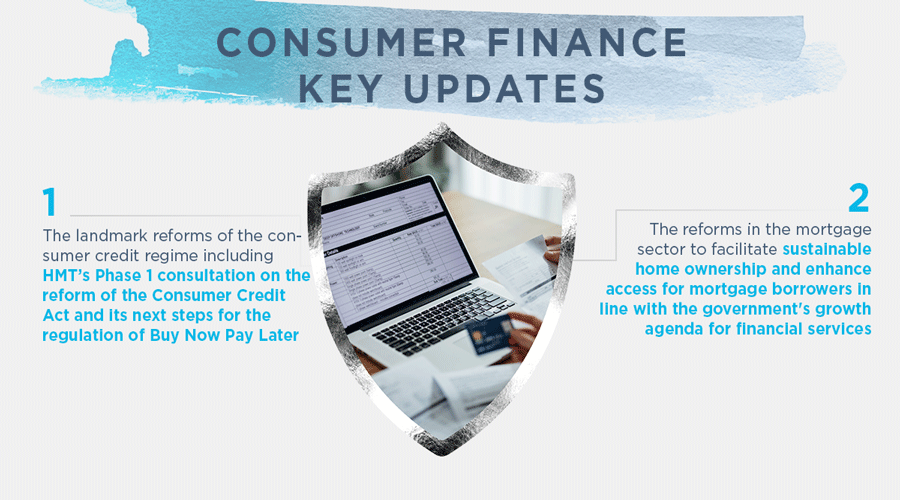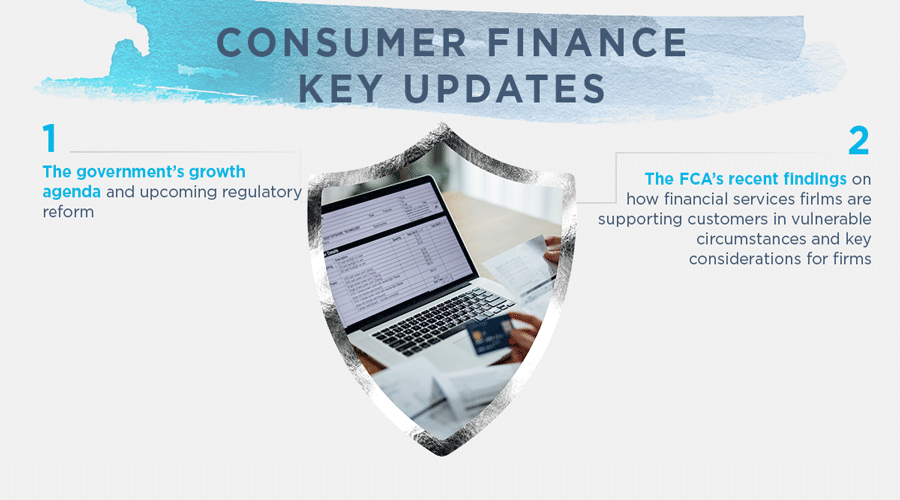Facilitating sustainable home ownership and enhancing access and flexibility for mortgage borrowers have been at the top of the government's growth agenda for financial services. We have seen several announcements from the Financial Conduct Authority (FCA) to take forward the government's agenda including reminding firms of existing rule flexibility to support consumer access to mortgages, launching a Call for Evidence to explore improvements in interest rate stress testing and consulting (together with the Prudential Regulation Authority) on proposed amendments to the de minimis threshold for the Loan to Income (LTI) flow limit in mortgage lending to ensure that small lenders can extend a greater value of residential mortgage lending before being subjected to the LTI flow limit.
Most notably, on 7 May 2025, the FCA published a consultation paper (CP25/11) on simplifying rules on mortgage lending.
FCA consultation on simplifying rules on mortgage lending (CP25/11)
CP25/11 proposes significant reforms to the mortgage regulations to simplify processes, increase flexibility and improve consumer outcomes. The proposals are aimed at streamlining mortgage processes, reducing compliance burdens for firms and providing consumers with easier, faster, and cheaper ways to manage their mortgage. The FCA thinks that the current rules which were tightened in the wake of the 2008 financial crisis are no longer appropriate given the mortgage market has undergone significant change since then. The FCA's introduction of outcomes-based regulation and the Consumer Duty also represent a significant change in approach.
What's changing?
Mortgage advice
One of the key things the FCA is looking to do is to make changes to when a borrower can engage with their mortgage provider without having to provide mortgage advice. The FCA is proposing to remove the "interactive dialogue" trigger at MCOB 4.8A7R(3) and the associated rules and guidance. Consequently, it is also looking to remove the requirement for customers to positively elect to proceed with an execution-only sale where there is interactive dialogue with the firm. However, it is proposing to maintain the requirement for customers to positively elect to proceed with an execution-only sale where they have rejected advice.
This change is designed to give firms greater flexibility to engage with customers without automatically requiring advice. Effectively firms will be able to offer execution-only sales and still have interactive dialogue with borrowers. However, firms would need to ensure that safeguards are in place under the Consumer Duty. They will also be required to have systems and processes in place to ensure they are able to identify execution-only customers who may require advice or support to avoid foreseeable harm. Firms must note that advice will still be mandatory in higher-risk circumstances such as debt consolidation and lifetime mortgages. Lastly, these changes would also apply to home purchase plans.
Affordability assessments
Proposals in the paper also include changes to affordability requirements to allow borrowers to reduce their mortgage terms easily and where it is appropriate for them. This aims to encourage term reductions, which lower total borrowing costs and reduce debt carried into later life. While firms can determine what form of assessment would be proportionate to the customer’s needs, they need to ensure they are compliant with Consumer Duty and responsible lending rules in making use of these changes.
The FCA is also looking to make it easier for borrowers to switch between lenders without lenders having to conduct a full affordability assessment in certain circumstances. It is proposing to expand the Modified Affordability Assessment (MAA), introduced in 2019, to allow lenders to undertake a lighter touch affordability assessment based on whether the new mortgage is more affordable than either the customer’s current mortgage or a new mortgage product that is available from their current lender.
As with the current MAA, this would be optional for lenders to use. Therefore firms should assess their risk appetite and consider whether they should be accepting more risk by using a simpler assessment of a customer’s ability to afford future monthly payments.
Retiring FG13/7
The FCA also plans to retire two pieces of outdated guidance: FG13/7 (guidance on dealing fairly with interest-only mortgage customers who risk being unable to repay their loan) and FG24/2 (guidance for firms supporting existing mortgage borrowers impacted by rising living costs). Firms will instead rely on updated standards under the Consumer Duty and applicable MCOB rules, which would require firms to treat customers with expired mortgage terms fairly and avoid repossession unless all other reasonable options have failed.
Next steps and other upcoming reforms in the mortgages sector
It was a short consultation which closed on 4th June. The FCA plans to publish a Policy Statement in Q3 2025. The FCA does not believe that an implementation period is required. Firms would be able to apply the changes at their discretion once final rules are introduced into the FCA Handbook.
The FCA has also confirmed in a recent speech delivered by Emad Aladhal, FCA Director of Retail Banking, that it is looking to open a discussion in June 2025 on the future of the mortgage market and the regulation of conduct in that market. The FCA is looking to explore various reforms including changes to the mortgage market's collective appetite for risk, using innovation for affordability assessments and enabling customers to make the right choices through changes to disclosure requirements. Mr Aladhal calls on the industry to consider more ways to ‘innovate’, ‘explore new ventures’, review their practices to ‘meet the long-term needs’ of customers, and ‘generate sustainable growth’.







